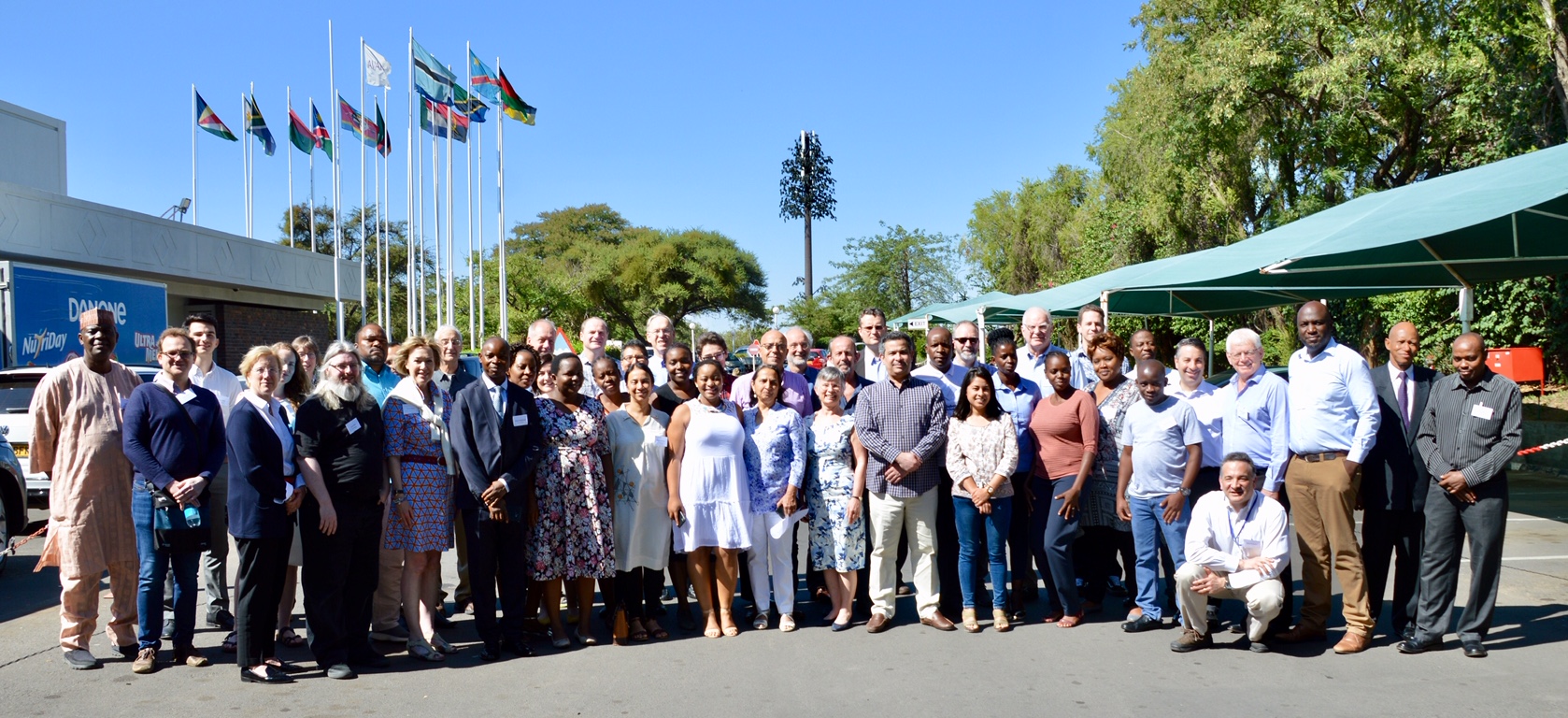The 4th Conference to coordinate efforts to design and develop an affordable and robust yet technically sophisticated linear accelerator-based radiation therapy treatment (RTT) system was held in Gabarone, Botswana on March 20-22, 2019. The conference was sponsored by STFC with funding from the UK Global Challenges Research Fund (GCRF) and supported by CERN and ICEC.

All too often, conferences related to creating a new program or technology to improve the care of patients with cancer or other conditions in LMIC’s and underserved regions of UIC countries are held in major world cities; New York, Geneva, London. Convening this conference in Gaborone enabled a significant number (over one half of the attendees) of physicians, physicists and staff from Sub-Sahara Africa and other LMICs to attend, present their reports and interact with the scientists working with them in their own region of the world thereby generating a sense of a global community working toward a common goal. It also allowed participants to visit hospitals, both private and public, in Gaborone to see the conditions under which the robust and modular RTT system will be used. The visiting participants left Gaborone with a much better understanding of the challenges faced by those treating patients with cancer in LMICs and a much stronger commitment to work with their colleagues to develop the new RTT systems that they need. Currently in the lowest income counties within Africa, only 4% of cancer patients that require radiotherapy are actually able to receive it. About 80% of the available machines are found in just six countries: South Africa, Egypt, Morocco, Tunisia, Nigeria and Algeria. The annual global incidence of cancer is projected to rise by 2035 to 25 million cases (13 million deaths) with 65 - 70% occurring in Low and Middle-income Countries (LMICs).
This workshop, built upon two prior workshops held at CERN in November 2016 and October 2017, and one in Manchester UK in March 2018. LMIC countries with participating representatives included: Botswana, Ghana, Jordan, Kenya, Nepal, Nigeria, Tanzania, Zambia, and Zimbawe. Expertise included accelerator and medical physicists, engineers, oncologists, and healthcare management representatives.
To set the stage for the discussion to advance the design work, there were background presentations on current linear accelerator treatment systems with a review of the relevant challenges identified in the prior workshops; an overview of radiation therapy treatment techniques and treatment planning systems; an overview of the major sub-systems of medical linear accelerators and their shortfalls, and new developments in artificial intelligence (AI) and machine learning as it can apply to radiation therapy. Opportunities to improve the performance of radiation therapy treatment systems with new technologies were summarized.
With radiation therapy delivered within a system of care, presentations were given on education, training and technical support needs, the various programs that were available, and on the continuing unmet needs in these areas with several sessions focusing on medical physics. Technological solutions to support long distance mentoring and technical support to compensate for shortages of staff and expertise were discussed.
The workshop concluded with a summary of progress, priorities to be addressed, and next steps.
Manjit Dosanjh, Senior Advisor for Medical Applications at CERN and Visiting Professor at the University of Oxford, John Adams Institute.